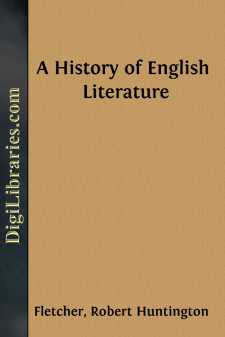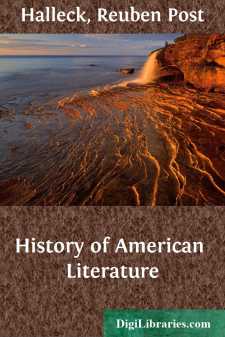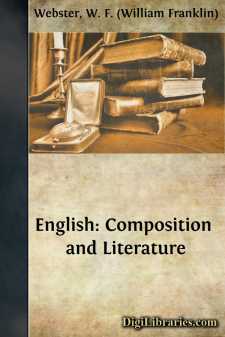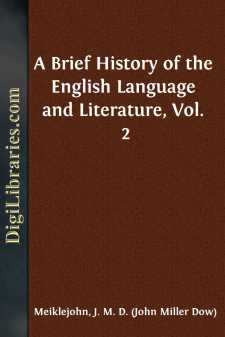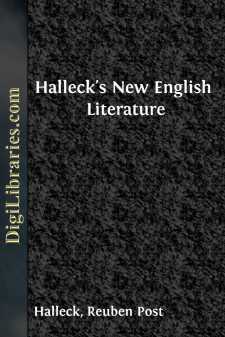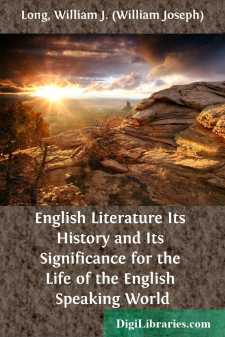Categories
- Antiques & Collectibles 13
- Architecture 36
- Art 48
- Bibles 22
- Biography & Autobiography 813
- Body, Mind & Spirit 142
- Business & Economics 28
- Children's Books 17
- Children's Fiction 14
- Computers 4
- Cooking 94
- Crafts & Hobbies 4
- Drama 346
- Education 46
- Family & Relationships 57
- Fiction 11829
- Games 19
- Gardening 17
- Health & Fitness 34
- History 1377
- House & Home 1
- Humor 147
- Juvenile Fiction 1873
- Juvenile Nonfiction 202
- Language Arts & Disciplines 88
- Law 16
- Literary Collections 686
- Literary Criticism 179
- Mathematics 13
- Medical 41
- Music 40
- Nature 179
- Non-Classifiable 1768
- Performing Arts 7
- Periodicals 1453
- Philosophy 64
- Photography 2
- Poetry 896
- Political Science 203
- Psychology 42
- Reference 154
- Religion 513
- Science 126
- Self-Help 84
- Social Science 81
- Sports & Recreation 34
- Study Aids 3
- Technology & Engineering 59
- Transportation 23
- Travel 463
- True Crime 29
A History of English Literature
Description:
Excerpt
TWO ASPECTS OF LITERARY STUDY. Such a study of Literature as that for which the present book is designed includes two purposes, contributing to a common end. In the first place (I), the student must gain some general knowledge of the conditions out of which English literature has come into being, as a whole and during its successive periods, that is of the external facts of one sort or another without which it cannot be understood. This means chiefly (1) tracing in a general way, from period to period, the social life of the nation, and (2) getting some acquaintance with the lives of the more important authors. The principal thing, however (II), is the direct study of the literature itself. This study in turn should aim first at an understanding of the literature as an expression of the authors' views of life and of their personalities and especially as a portrayal and interpretation of the life of their periods and of all life as they have seen it; it should aim further at an appreciation of each literary work as a product of Fine Art, appealing with peculiar power both to our minds and to our emotions, not least to the sense of Beauty and the whole higher nature. In the present book, it should perhaps be added, the word Literature is generally interpreted in the strict sense, as including only writing of permanent significance and beauty.
The outline discussion of literary qualities which follows is intended to help in the formation of intelligent and appreciative judgments.
SUBSTANCE AND FORM. The most thoroughgoing of all distinctions in literature, as in the other Fine Arts, is that between (1) Substance, the essential content and meaning of the work, and (2) Form, the manner in which it is expressed (including narrative structure, external style, in poetry verse-form, and many related matters). This distinction should be kept in mind, but in what follows it will not be to our purpose to emphasize it.
GENERAL MATTERS. 1. First and always in considering any piece of literature a student should ask himself the question already implied: Does it present a true portrayal of life—of the permanent elements in all life and in human nature, of the life or thought of its own particular period, and (in most sorts of books) of the persons, real or imaginary, with whom it deals? If it properly accomplishes this main purpose, when the reader finishes it he should feel that his understanding of life and of people has been increased and broadened. But it should always be remembered that truth is quite as much a matter of general spirit and impression as of literal accuracy in details of fact. The essential question is not, Is the presentation of life and character perfect in a photographic fashion? but Does it convey the underlying realities? 2. Other things being equal, the value of a book, and especially of an author's whole work, is proportional to its range, that is to the breadth and variety of the life and characters which it presents. 3. A student should not form his judgments merely from what is technically called the dogmatic point of view, but should try rather to adopt that of historical criticism. This means that he should take into account the limitations imposed on every author by the age in which he lived. If you find that the poets of the Anglo-Saxon 'Béowulf' have given a clear and interesting picture of the life of our barbarous ancestors of the sixth or seventh century A. D., you should not blame them for a lack of the finer elements of feeling and expression which after a thousand years of civilization distinguish such delicate spirits as Keats and Tennyson. 4. It is often important to consider also whether the author's personal method is objective, which means that he presents life and character without bias; or subjective, coloring his work with his personal tastes, feelings and impressions. Subjectivity may be a falsifying influence, but it may also be an important virtue, adding intimacy, charm, or force. 5. Further, one may ask whether the author has a deliberately formed theory of life; and if so how it shows itself, and, of course, how sound it is.
INTELLECT, EMOTION, IMAGINATION, AND RELATED QUALITIES. Another main question in judging any book concerns the union which it shows: (1) of the Intellectual faculty, that which enables the author to understand and control his material and present it with directness and clearness; and (2) of the Emotion, which gives warmth, enthusiasm, and appealing human power....


